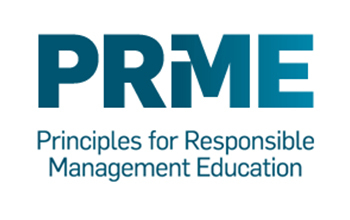- Homepage
- ESDES’s blog
- Job Description
- How to become a Purchasing Manager: missions, skills, salary...
ESDES
4 min.
14 August 2024
Discover the career path of a purchasing manager, delving into their pivotal role within organizations. From overseeing procurement activities to strategizing for optimal pricing and quality, purchasing managers are the linchpin in securing essential goods and services.
And for those looking to transform their career, consider the accredited program at Esdes Business School, offering a specialized track in International Supply Chain and Purchasing to propel you towards becoming a proficient purchasing manager in the global market.
What is a Purchasing Manager (role, missions...)?
A purchasing manager plays a crucial role in an organization's procurement process. They are responsible for overseeing the purchasing activities, ensuring that the organization obtains the necessary goods and services at the best possible price and quality. The role involves strategic planning, supplier management, and negotiation skills.
Key responsibilities of a purchasing manager include:
- Ensuring compliance with procurement regulations and policies
- Developing and implementing procurement strategies
- Negotiating contracts and agreements
- Collaborating with other departments to understand their purchasing needs
- Monitoring inventory levels and managing supply chain risks
- Identifying potential suppliers and conducting supplier evaluations
To excel in this role, you should have excellent analytical and problem-solving skills as well as strong negotiation and communication skills, and the ability to make sound decisions. You should also be detail-oriented and possess good organizational and time management skills.
What are the essential skills and qualifications to succeed as a Purchasing Manager?
To succeed as a purchasing manager, certain skills and qualifications are essential. These include, for example, a strong analytical and critical thinking skills to analyze assess supplier capabilities, market trends and make informed purchasing decisions. You should also have excellent communication and negotiation skills to effectively interact with suppliers, internal stakeholders, and other departments.
In the list of important skills to have, you can also add:
- Good knowledge of procurement regulations and policies to ensure compliance.
- Proficiency in using procurement software and tools to streamline processes and improve efficiency.
- Strong organizational and time management skills to handle multiple tasks and meet deadlines.
- Attention to detail to ensure accurate and error-free procurement processes.
- Leadership and team management skills to lead a purchasing team and collaborate with other departments.
- A bachelor's degree in business, supply chain management, or a related field is typically required, although some employers may also consider relevant work experience in lieu of formal education.
- Professional certifications such as Certified Professional in Supply Management (CPSM) or Certified Purchasing Manager (CPM) can also enhance career prospects.
What are the salary expectations for Purchasing Managers
The salary of a purchasing manager can vary based on different factors such as industry, company size, location, and level of experience. According to the Bureau of Labor Statistics, the median annual wage for purchasing managers was $146,710 as of May 2023.
However, it's important to note that salaries can range significantly, with entry-level purchasing managers earning around $63,000 and experienced professionals earning over $180,000 per year. Additional factors such as bonuses, profit sharing, and benefits can also contribute to the overall compensation package.
Career growth opportunities in the field
The field of purchasing management offers various career growth opportunities. With experience and demonstrated skills, purchasing managers can move up the corporate ladder and take on more senior roles such as procurement director, supply chain manager, or operations manager. You also have the opportunity to specialize in specific industry or sectors.
The demand for purchasing managers is expected to remain steady, and individuals with the right skills and qualifications can find rewarding career opportunities in a variety of industries.
Tips for becoming a successful Purchasing Manager
Becoming a successful purchasing manager requires a combination of education, skills, and experience. Here are some tips to help you on your journey:
- Pursue a relevant degree or certification to gain a strong foundation in procurement and supply chain management
- Gain practical experience through internships, part-time roles, or entry-level positions in purchasing or procurement departments
- Demonstrate leadership qualities and take on additional responsibilities whenever possible
- Seek continuous learning and professional development opportunities to enhance your skills and knowledge
- Network with professionals in the field, join industry associations, and attend conferences and seminars to expand your professional network
- Develop strong analytical and negotiation skills, as well as the ability to build and maintain relationships with suppliers and stakeholders
Becoming Purchasing Manager with Esdes Business School
What if you choose an accredited program in a French recognized business school to help you become a Purchasing Manager? Join Esdes Business School master in management program and the International Supply Chain and Purchasing specialization.
This program, accredited by CIPS, the global leader in Procurement and Supply Chain, stands out as the sole PGE program in France with this prestigious recognition. Students enrolled in this program are presented with vast opportunities to excel in operations management within various companies and organizations.
Designed to equip students with the necessary skills and expertise, the program focuses on developing their abilities to effectively manage people, processes, and technologies essential for modern supply chains. It also prepares students to navigate strategic business challenges and compete in the international market with confidence.












